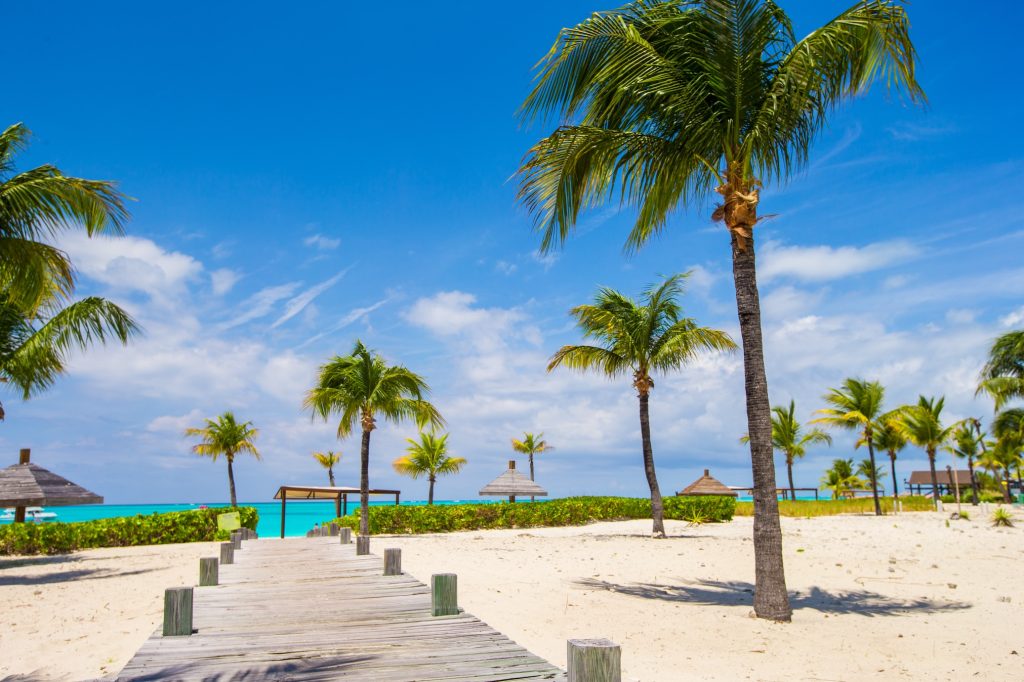Introduction to Low Tax Countries
Low tax countries offer individuals and businesses opportunities to significantly reduce their tax burdens. These countries often have minimal or nonexistent income taxes, favorable corporate tax rates, or other tax-friendly policies.
While the potential financial benefits are clear, navigating the complexities of international tax law is essential. This article will explore some of the most popular low tax countries, factors to consider when making a move, and the importance of seeking professional advice before making any major tax-related decisions.
In a Nutshell: Low Tax Countries
- The Bahamas: This Caribbean nation boasts zero income tax, capital gains tax, or inheritance tax. Residents primarily earn income through tourism, banking, and other service sectors.
- Bermuda: This British Overseas Territory also has no income tax. Its government generates revenue through fees, payroll taxes, and taxes on imported goods.
- United Arab Emirates (UAE): The UAE levies no income tax on individuals. Businesses may be subject to corporate tax, but numerous free-trade zones offer exemptions for companies operating within them.
- Cayman Islands: Another British Overseas Territory, the Cayman Islands has no income tax, property tax, or corporate tax. Government revenue comes primarily from indirect taxes like import duties.
- Monaco: This tiny European principality is renowned for its tax-friendly policies. There is no income tax, no property tax, and no wealth tax for Monegasque citizens and most residents. However, French nationals residing in Monaco are subject to French taxation.
Comparing Low Tax Countries
| Country | Income Tax Rate | Corporate Tax Rate | Typical Residency Requirements | Cost of Living | Infrastructure | Legal System |
|---|---|---|---|---|---|---|
| Bahamas | 0% | 0% | Real estate purchase, investment, or financial means | High | Good | Common Law |
| Bermuda | 0% | 0% | High-value real estate purchase, work permit, or government investment | High | Good | Common Law |
| United Arab Emirates | 0% | Varies, can be 0% in free zones | Business operations or investment | High | Excellent | Varies regionally (Common Law and Sharia Law elements) |
| Cayman Islands | 0% | 0% | Investment in government bonds or funds | High | Good | Common Law |
| Monaco | 0% (except French citizens) | 0% (with exceptions) | Significant investment or financial resources | Very High | Good | Civil Law |
| Singapore | Progressive (up to 22%) | 17% | Investment, employment, or residency program | Medium (but high housing costs) | Excellent | Common Law |
| Switzerland | Varies by canton | Varies by canton | Varies by canton | High | Excellent | Civil Law |
| Bulgaria | 10% flat | 10% flat | Investment or business ownership | Low | Good | Civil Law |
The Bahamas

The Bahamas stands out as a particularly attractive low-tax jurisdiction for several reasons:
- Truly Tax-Free Living: The Bahamas has no income tax, no capital gains tax, no inheritance tax, and no wealth tax. This means individuals can keep the entirety of their income and enjoy tax-free growth of their assets.
- Ease of Residency: Establishing residency in the Bahamas is relatively straightforward. Options include purchasing real estate, making a substantial investment, or obtaining an annual residency permit.
- Beautiful Lifestyle: The Bahamas is renowned for its stunning beaches, crystal-clear waters, and relaxed island lifestyle. It offers a luxurious environment for those seeking a change of scenery and lower taxes.
- Developed Financial Sector: The Bahamas has a well-established financial services industry, making it convenient for handling banking, investments, and any necessary financial transactions.
Considerations:
- Cost of Living: The Bahamas can have a higher cost of living compared to some countries, especially for imported goods and housing.
- VAT: While there’s no income tax, the Bahamas has a Value Added Tax (VAT) on goods and services.
- Limited Economic Diversity: The Bahamian economy heavily relies on tourism and financial services, making it potentially less diverse than other options.
Bermuda
Bermuda, a British Overseas Territory, presents interesting possibilities for those seeking lower taxes:
- Income Tax-Free: Bermuda imposes no income tax, capital gains tax, or inheritance tax, allowing individuals to keep more of their earnings and investments.
- Relatively Straightforward Residency: Options for establishing residency include purchasing high-value real estate, making a government investment, or, for specific categories like retirees, demonstrating sufficient financial means.
- Picturesque Island Living: Bermuda offers scenic island landscapes, a pleasant climate, and a well-developed infrastructure, providing an appealing environment for potential relocation.
- Stable Political and Economic System: As a British Overseas Territory, Bermuda benefits from political stability and a strong regulatory framework.
Considerations:
- High Cost of Living: Bermuda is known for its high cost of living, particularly for real estate and imported goods.
- Payroll and Import Taxes: While there’s no income tax, businesses and employees are subject to payroll taxes. Furthermore, Bermuda’s revenue primarily stems from import duties on goods.
- Work Permits: Non-Bermudians often require work permits for employment in Bermuda, potentially limiting some career opportunities.
United Arab Emirates (UAE)

The UAE provides a compelling mix of tax benefits and a modern, dynamic environment:
- No Income Tax: The UAE has no personal income tax, allowing individuals to keep their full salaries.
- Corporate Tax Incentives: While there’s a corporate tax, numerous free-trade zones within the UAE offer complete tax exemptions for businesses operating within them.
- Prosperous Economy: The UAE boasts a diversified economy driven by oil, tourism, trade, and financial services, offering numerous business opportunities.
- Exceptional Infrastructure: The UAE invests heavily in modern infrastructure, high-quality living standards, and excellent transportation links.
Considerations:
- VAT: The UAE has a Value Added Tax (VAT) of 5% on most goods and services.
- Varying Regulations Across Emirates: Each of the seven emirates within the UAE has some autonomy; tax and regulatory specifics may vary slightly between them.
- Cultural Differences: It’s essential to be aware of and respectful of the UAE’s cultural norms and legal system if considering relocation.
Monaco

The luxurious principality of Monaco is synonymous with a tax-friendly environment, especially for high-wealth individuals:
- No Income, Wealth, or Property Taxes: Monaco has no income tax, no wealth tax, and no property tax for most residents. This makes it an attractive destination for high net-worth individuals seeking to minimize their tax burden.
- Caveat for French Nationals: An important exception is French citizens residing in Monaco, who remain subject to French taxation.
- High Standard of Living: Monaco offers a glamorous lifestyle with upscale amenities, a beautiful Mediterranean setting, and a high level of security.
- Limited Economic Activities: Monaco’s economy is focused on tourism, luxury goods, and financial services. This may offer less diverse opportunities compared to larger countries.
Considerations:
- Very High Cost of Living: Real estate, goods, and services in Monaco are among the most expensive in the world.
- Strict Residency Requirements: Becoming a Monaco resident requires significant investment or demonstrating substantial financial resources. The process can be lengthy and competitive.
- Potential Scrutiny: Residing in a tax haven like Monaco could invite heightened scrutiny from tax authorities in your home country.
Cayman Islands

This British Overseas Territory in the Caribbean is well-known for its favorable tax structure:
- Zero Direct Taxes: The Cayman Islands has no income tax, capital gains tax, property tax, or corporate tax. This offers enormous potential savings for individuals and businesses.
- Financial Hub: The Cayman Islands is a major international financial center, home to numerous banks, hedge funds, and other financial institutions. This well-established infrastructure supports business operations.
- Tourism Destination: With stunning beaches and a relaxed atmosphere, the Cayman Islands are a popular tourist destination, contributing to the local economy.
- British Overseas Territory: This status provides political stability and a reliable legal system.
Considerations
- Indirect Taxes: The government’s primary revenue source is import duties and fees on financial transactions.
- Cost of Living: The Cayman Islands can have a high cost of living, particularly for housing and imported goods.
- Work Permits: Non-Caymanians generally require work permits to be employed in the Cayman Islands.
- Potential for Scrutiny: Due to its reputation as a tax haven, individuals or businesses connected to the Cayman Islands might face increased scrutiny from tax authorities elsewhere.
Additional Countries with Overall Low Tax Environments
While some countries boast zero income tax, others offer a significantly less burdensome tax environment compared to many developed nations. Here are a few examples:
- Singapore: Singapore has become renowned for its business-friendly environment. It features a competitive corporate tax rate (currently 17%) and a relatively low personal income tax, making it attractive for both businesses and individuals.
- Switzerland: Long known for its banking sector, Switzerland also has comparatively low tax rates and cantonal (regional) variations. While not a zero-tax environment, Switzerland’s tax regime can be advantageous, especially for businesses.
- Bulgaria: This Eastern European nation boasts the lowest flat income tax rate in the European Union at 10%. Additionally, its corporate tax rate is also a flat 10%, making it appealing for establishing a business presence.
Factors Beyond Just Tax Rates
When considering relocating to a low-tax country, it’s crucial to remember that tax rates are only one piece of the puzzle. Several other factors will play a significant role in determining the overall suitability and potential success of such a move. Let’s examine some of the most important considerations:
Residency Requirements
Each low-tax country has its own set of rules and regulations for establishing tax residency. It’s vital not to assume that simply living in a country automatically grants you the most favorable tax benefits. Here’s a breakdown of what to consider:
- Days in Country: Many countries require spending a minimum number of days (often 183 or more) physically present within their borders to qualify as a tax resident.
- Property Ownership: Some countries offer residency pathways through purchasing real estate above a specified value.
- Investments: Options might include making a significant investment in a government-approved fund, a local business, or a financial institution.
- Economic Ties: Demonstrating substantial economic activity in the country, such as employment or operating a business, can also be a factor for residency.
Cost of Living
While low-tax countries promise the allure of keeping more of your money, it’s essential to consider the everyday cost of living. Here’s what you need to keep in mind:
- Housing: Real estate prices in desirable low-tax locations can be extremely high, particularly in island nations with limited space.
- Imported Goods: Many countries with low or no income tax rely on import duties. This can significantly increase the price of imported goods, from food to electronics.
- Services: The cost of services like healthcare, childcare, and transportation may also be elevated due to a smaller labor pool or specialized needs.
- Hidden Costs: Factor in costs associated with potential visa renewals, residency maintenance, and any additional fees, taxes, or surcharges that might apply in the chosen location.
Infrastructure
The quality of a country’s infrastructure significantly impacts daily life and business operations. When evaluating a low-tax nation, consider these factors:
- Transportation: Are there reliable road networks, airports, and ports? A well-developed transportation system is crucial for both personal mobility and the movement of goods within businesses.
- Utilities: Does the country have stable power grids, access to clean water, and reliable waste disposal systems? These basic services are essential for a comfortable life and a functional business environment.
- Internet and Communication: In today’s connected world, fast and reliable internet access is critical for communication, remote work, and various daily activities.
- Healthcare and Education: Assess the quality of available healthcare and educational facilities, especially if relocating with a family.
Legal Systems
Countries worldwide operate under different legal systems, which can have profound implications on businesses and individuals. Here’s what to keep in mind:
- Rule of Law: How strong is the country’s adherence to the rule of law? Are property rights secure? Are contracts reliably enforced? Stability and predictability in the legal environment are desirable.
- Tax Laws and Regulations: Even low-tax jurisdictions have their own complex tax codes. Familiarize yourself with any potential tax liabilities, reporting requirements, and restrictions.
- Business Regulations: Understand the regulatory environment for establishing and operating a business. Consider licensing requirements, labor laws, and import/export regulations.
- Personal Laws: If relocating, research laws regarding marriage, inheritance, family matters, and any other area impacting your personal circumstances.
Risks and Considerations
While relocating to a low-tax country can be enticing, it’s important to be mindful of potential risks and downsides before making such a move. Here’s what you need to carefully think about:
- Scrutiny from Home Country: Tax authorities may closely examine individuals or businesses that relocate to tax havens. Be prepared for potential audits or inquiries into your tax affairs.
- Ethical Considerations: Aggressive tax-avoidance strategies can draw criticism and contribute to the perception of exploiting a country’s tax laws. Consider the ethical implications of significantly reducing your tax burden compared to your home country.
- Reputational Risks: Being associated with a tax haven could potentially damage the reputation of individuals or businesses in certain contexts.
- Limited Exit Strategies: If circumstances change (tax laws, political environment), exiting your country of residency and repatriating assets may be complex or come with additional tax implications.
Final Thoughts
Low-tax countries can offer significant financial benefits for those seeking to reduce their tax burden. From islands with zero income tax to nations with favorable tax environments, there are options to consider. However, a successful move requires meticulous planning and a comprehensive understanding of the complexities involved.
Remember, tax laws are subject to change, and your individual circumstances will significantly impact the suitability of any relocation plans. Before making major decisions, always consult qualified tax advisors and legal experts specializing in international taxation and the laws of your target country.
Additional Resources
To delve deeper into the world of low-tax countries and international tax planning, explore these resources:
Government Resources:
- OECD (Organisation for Economic Co-operation and Development) Tax Information: (https://www.oecd.org/daf/anti-bribery/theoecdissuesthelistofunco-operativetaxhavens.htm) Provides reports, guidelines, and analyses on international tax policies and the fight against tax havens.
- Official Websites of Low-Tax Countries: Search for the official government websites of the Bahamas, Bermuda, UAE, etc., to find the most up-to-date information on residency requirements and tax laws.
Tax & Financial Resources:
- Tax Foundation: (https://taxfoundation.org/) Offers data, research, and commentary on tax policies across various countries and jurisdictions.
- KPMG Global Tax Information: (https://kpmg.com/us/en/capabilities-services/tax-services/international-tax-trade-and-transfer-pricing/international-tax.html) Provides country-specific tax summaries and insights from a major international accounting firm.
Important: Remember, tax laws and regulations change frequently. Always consult with a qualified international tax advisor before making any major financial decisions.
Is it legal to move to a low-tax country?
Yes, in most cases, relocating to a low-tax country is perfectly legal. However, it’s crucial to comply with tax laws and reporting requirements of BOTH your home country and your new country of residence.
Are low-tax countries the same as tax havens?
While there’s overlap, not all low-tax countries are considered “tax havens.” Tax havens often have greater secrecy and less stringent regulations designed to attract foreign capital.
Do I need to be wealthy to move to a low-tax country?
Not necessarily. While many low-tax countries are known for attracting high net worth individuals, some offer residency options for those with more modest means. The financial requirements vary depending on the country.
Will I automatically save money by moving to a low-tax country?
Not always. Consider factors such as cost of living, potential indirect taxes, and any professional fees involved in establishing residency. A comprehensive financial analysis is crucial before making a decision.
Can I run my business from a low-tax country?
Potentially, yes. Many low-tax nations have business-friendly laws. However, be aware of tax rules in countries where your clients are based, as your business may still incur tax liabilities in those jurisdictions.






